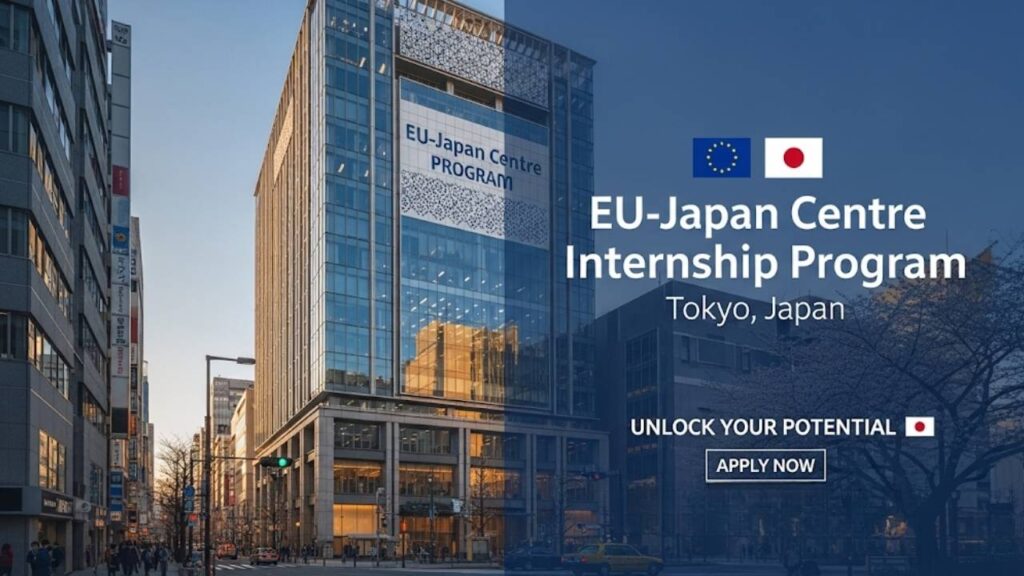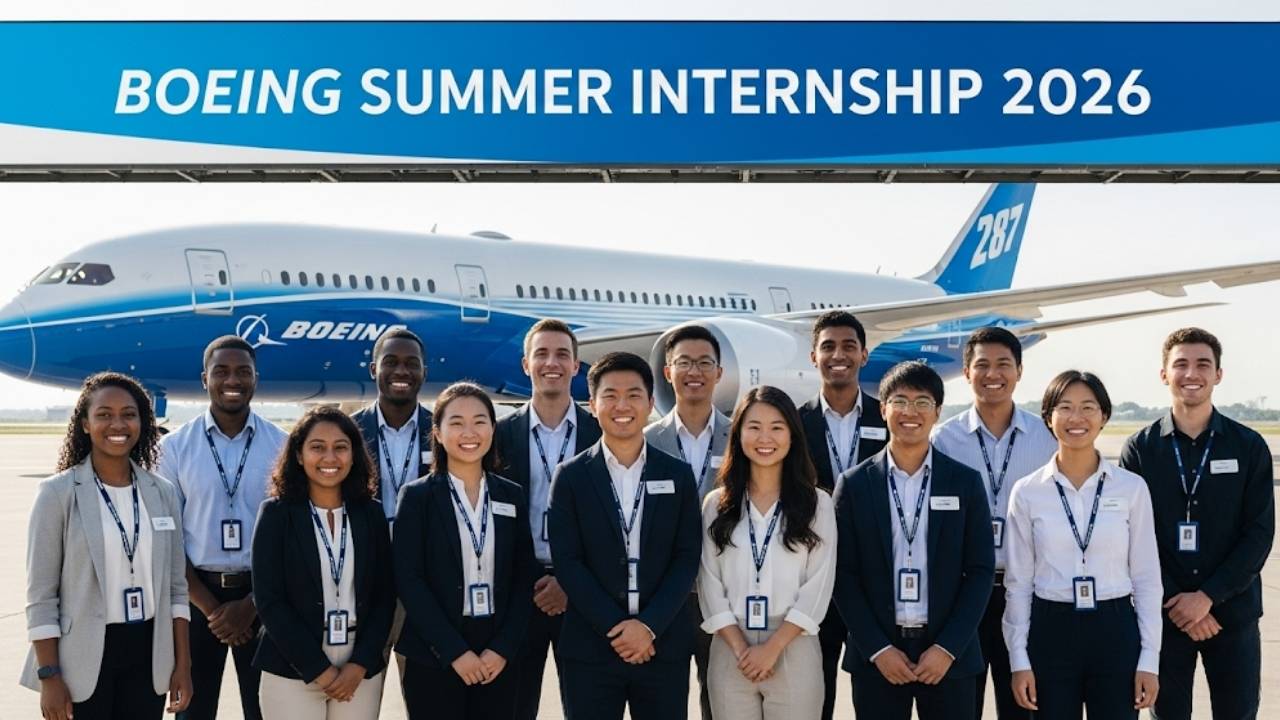Are you a student dreaming of a career that spans continents, with a passion for innovation and international relations? If so, the EU-Japan Centre internship programs might be the key to unlocking your future. Securing one of these prestigious positions can feel like a daunting task, but with the right guidance, it’s entirely within your reach. This article is your comprehensive guide to understanding the application process, from eligibility to crafting a standout application, ensuring you’re ready to take the next step toward an unforgettable professional and cultural experience.

Why the EU-Japan Centre? A Bridge Between Worlds
The EU-Japan Centre for Industrial Cooperation is a unique joint venture between the European Commission and the Japanese Ministry of Economy, Trade, and Industry (METI). Its primary mission is to foster and promote industrial, trade, and investment cooperation between the EU and Japan. For students and recent graduates, this mission translates into unparalleled opportunities to immerse themselves in a professional environment that is a true blend of European rigor and Japanese innovation.
What makes this internship so special? It’s the chance to work at the heart of EU-Japan relations, whether in the Centre’s Tokyo or Brussels office. As an intern, you won’t be fetching coffee; you’ll be contributing to meaningful research, supporting high-level events, and gaining insights into complex international policies. I’ve seen many successful applicants leverage this experience to launch careers in diplomacy, international business, and advanced technology. It’s not just an internship; it’s a foundational experience for a global career.
Navigating the Opportunities: Know Your Program
The EU-Japan Centre offers a variety of internship and training programs, each with its own specific focus and requirements. It’s crucial to identify which one aligns with your goals and qualifications. The two main pathways are the general internship opportunities and the highly sought-after Vulcanus in Japan program.
The General Internship Pathway
This is the most common route, offering a flexible, short-term experience for motivated candidates. These internships are typically based in either the Centre’s Brussels or Tokyo office.
- Who it’s for: Students or recent graduates from an EU Member State or Japan with a keen interest in international relations, economics, business, or related fields.
- Duration: These internships can range from one to six months, with a typical duration of three to four months.
- Key tasks: Interns often focus on research and analysis to support the Centre’s various projects and publications, updating website content, and assisting with events.
- How to apply: The application process is straightforward. You’ll need to submit your CV and a concise letter of motivation directly to the Centre’s applications email address.7 It’s worth noting that these applications are often reviewed on a rolling basis, so applying early is always a good strategy.

The Vulcanus in Japan Program: A Deep Dive into Japanese Industry
For students in engineering and scientific fields, the Vulcanus in Japan program is the gold standard. This is a comprehensive, eight-month program that combines intensive language training with a hands-on industrial placement. It’s more than just an internship; it’s a full-year immersion into Japanese professional and cultural life.
According to the official program website, the program is structured into two main parts: a four-month intensive Japanese language course followed by a six-month traineeship in a leading Japanese company. This unique structure ensures that you not only gain valuable work experience but also develop a deep cultural understanding and language skills that are invaluable in today’s globalized world.
Vulcanus in Japan Eligibility and Requirements
Securing a spot in this program is highly competitive, with a rigorous selection process. To be eligible, applicants must:
- Citizenship: Be a citizen of an EU Member State or a country associated with the Single Market Programme.
- Academic Status: Be enrolled at a university in an EU Member State or a Single Market Programme-associated country in an engineering, science, or architecture field. You must be in at least your fourth official year of studies and remain enrolled at the university until at least June following the application deadline.
- Language Skills: Possess a high proficiency in English. Knowledge of Japanese is not a prerequisite but is considered a significant asset.
Crafting a Winning Application: Your Path to Success
Your application documents are your first and best chance to make a lasting impression. Don’t just list your qualifications; tell a compelling story. Here’s how you can make your application stand out:
1. The Curriculum Vitae (CV)
Your CV should be more than just a chronological list of jobs. Highlight skills and experiences that are directly relevant to the program. Use strong action verbs and quantify your achievements whenever possible. For example, instead of saying, “Assisted with research,” try, “Conducted in-depth market research that led to a 15% increase in lead generation.” This specificity demonstrates your impact and shows you’re results-oriented.
2. The Motivation Letter
This is arguably the most important part of your application. Think of it as your personal narrative. Answer these questions with passion and clarity:
- Why this internship? What about the EU-Japan Centre’s mission resonates with you?
- Why Japan (or Brussels)? Demonstrate a genuine interest in the culture, economy, or specific industries.
- Why you? How do your unique skills, experiences, and academic background make you the perfect candidate for this role?
I’ve seen many candidates make the mistake of using a generic template. My advice? Start from scratch. Write your motivation letter as if you’re writing a personal letter to the selection committee, explaining why this opportunity is so important to you and what you’ll contribute. Be authentic.

3. The Letter of Recommendation
A strong letter of recommendation from a university professor or a past employer can be a game-changer. Choose someone who knows you well and can speak to your strengths, work ethic, and potential. Provide them with your CV and a copy of your motivation letter so they can tailor their recommendation to the specific program you’re applying for.
Timeline and Key Dates for the 2026 Intake
While the exact dates can vary slightly year to year, the application window for the EU-Japan Centre internship and Vulcanus programs typically opens in the late fall or early winter for the following year’s intake. For the January 2026 intake, applications will likely be reviewed in the preceding months.
Applying for an EU-Japan Centre internship is more than just a bureaucratic process; it’s the beginning of a transformative journey. It’s an opportunity to build a professional network, gain hands-on experience in a dynamic international environment, and immerse yourself in one of the world’s most fascinating cultures.

This process requires diligence and a clear sense of purpose. Focus on demonstrating your genuine interest and highlight your unique contributions. Remember, every successful professional was once a passionate student who took a leap of faith. Your time is now. Start preparing your application today and take the first step toward an extraordinary adventure.
KPMG Summer 2026 Internship: How to Apply & Succeed
Unlock Your Future in Physics: Your Guide to the CREDO Internship 2025 at Università di Siena
FAQ
Q1:Is the EU-Japan Centre internship paid?
The general internships at the EU-Japan Centre are often unpaid, though some may offer a stipend to cover commute or daily expenses. The Vulcanus in Japan program, however, provides a grant that covers travel to and from Japan, as well as living expenses, with accommodation provided by the host company.
Q2:Do I need to know Japanese to apply for the Vulcanus program?
No, a prerequisite knowledge of Japanese is not required. The program includes an intensive four-month language course at the beginning to equip you with the necessary skills for daily life and your traineeship. However, having some Japanese language skills is a plus.
Q3:What kind of companies host interns through Vulcanus in Japan?
Host companies are typically leading Japanese firms in various scientific and engineering fields, including but not limited to ICT, robotics, biotechnology, mechanical engineering, and civil engineering. The specific company you are placed with depends on your academic background and the company’s needs.










